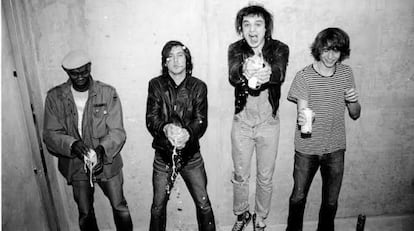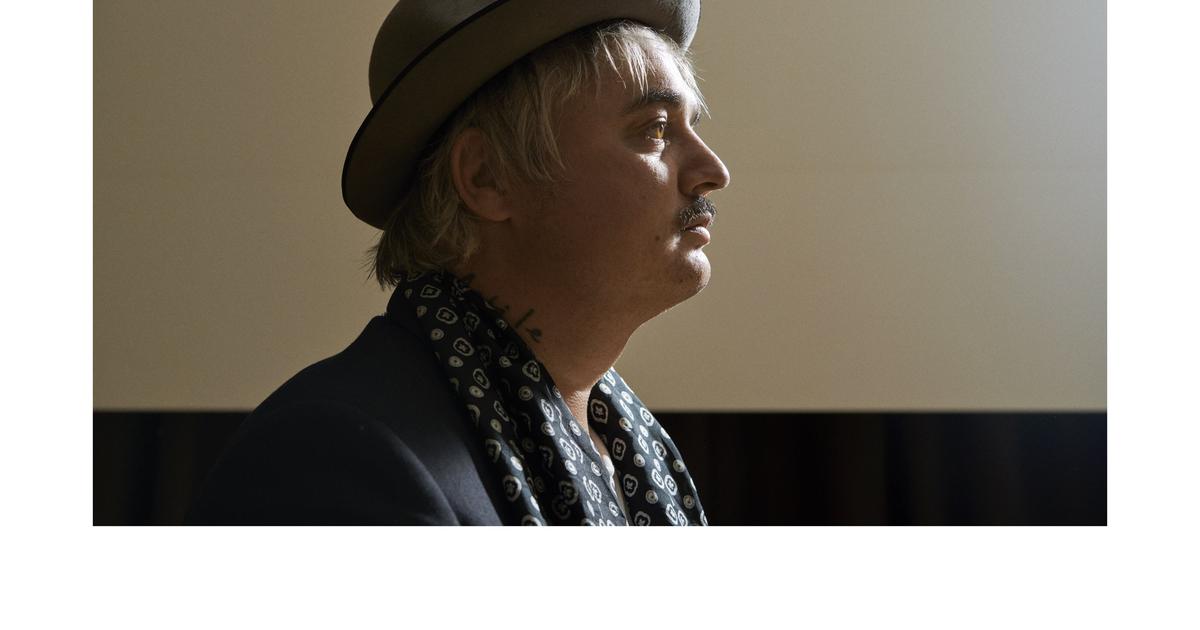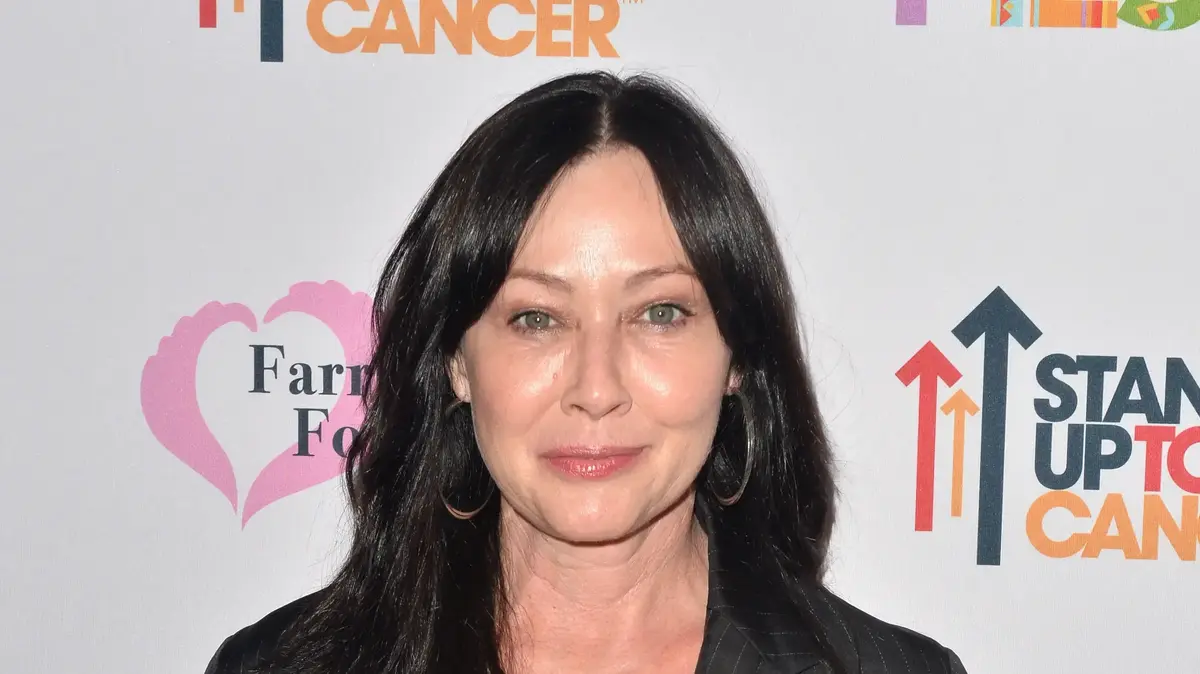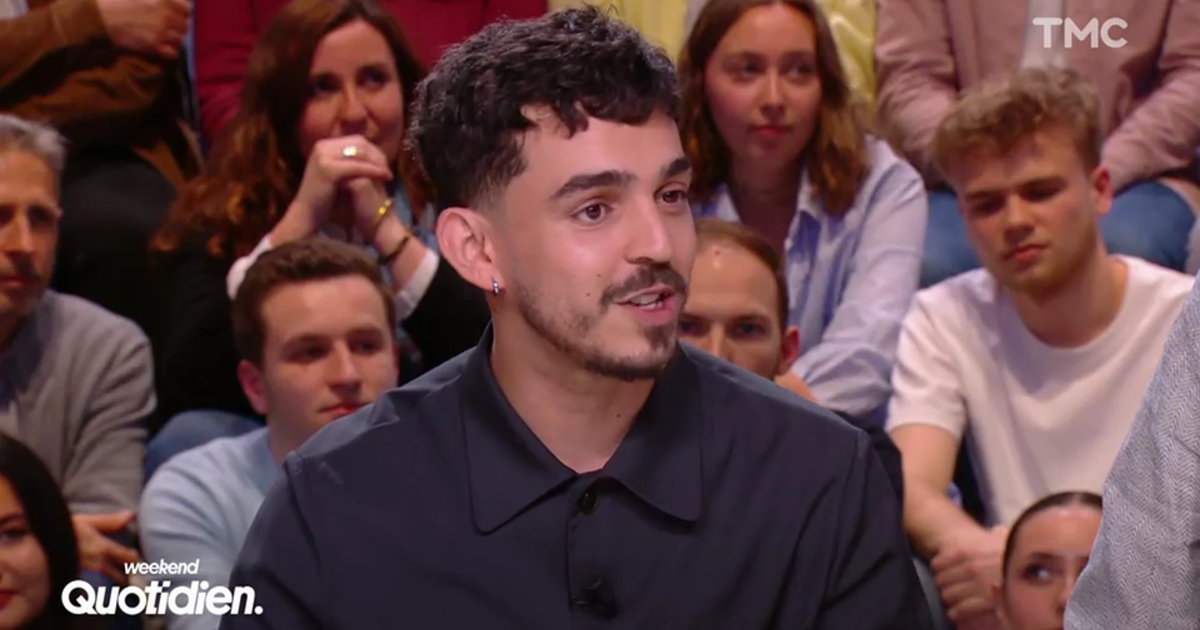The Libertines are back on the road.
In fact, the band led by Pete Doherty and Carl Barat has been playing regularly around the world since 2014: a surprisingly long span of time for a group that championed self-destruction, chaos and unpredictability.
But the special thing about this tour -which will not go through Spain- is that it serves to celebrate the 20th anniversary of his legendary debut album,
Up The Bracket
.
On the way to Bristol, where they were to play on the last night of June, vocalist/guitarist Carl Barat answers a phone that annoyingly stutters several times.
“On stage we feel better than ever.
Pete and I have been through a lot together, and our chemistry is very strong,” says the co-leader of the British band, with a satisfied voice.
"It's better to play in The Libertines now than it was twenty years ago, especially if you like sanity!"
Is it true that you are going to record a new album in Jamaica?
How do you know that?
It's supposed to be a big secret!
Pete has said it in a couple of interviews, but I didn't know if I believed it.
Yeah, he's not very good at keeping secrets, is he?
(laughs).
Yes, that's the plan.
At the moment we don't have anything concrete, just some ideas.
Let's see how we feel and how things go.
Each recording ends up being a snapshot of that moment, so we can't guess what it's going to sound like, but we're looking forward to it being a fantastic experience.
How is your relationship right now?
It's great, much better than twenty years ago, if I'm honest.
He is more focused, in a better place, and I would tell you that he is also a better man than he has been.
He has just published an autobiographical book,
A Likely Lad.
Have you read it?
Yes, of course.
Pete passed me the manuscript before it was published.
What did I think?
There are things that I would have narrated differently, on some issues I disagree, but if I want to tell my version of the story I will have to write my own book.
Pete Doherty leaving the courthouse in London and facing the media.AP
What truth is there in the myth that he was the free spirit, the chaotic poet, and you the rational and calculating part, the one that pulled the most professional part of the group?
No, do not say that!
No way!
We have been through very serious circumstances over the years, it should not be frivolous.
How do you remember the first concert of The Libertines?
,
It was in 1999, at the 12 Bar Club in London.
A magical moment, we couldn't even imagine what was going to happen, we weren't sure if they were going to pay us or if we were going to fight with someone.
At that end of the millennium, in a British capital that was experiencing the last throes of Britpop and was becoming more and more open to electronic sounds, Doherty (Hexham, United Kingdom, 1979) and Barat (Basingstoke, United Kingdom, 1978) were condemned to meet.
The link was Amy-Jo, Peter's older sister (who, by the way, has been living in Madrid for years and has integrated very well), who then shared a flat with Carl.
In a short time, they became close friends.
They left their studies - English literature Peter and dramatic art Carl - and went to share a house in the neighborhood of Camden which they baptized with the name of The Albion Rooms.
The oldest name by which Britain is known was an instant part of Doherty's mythology, whose destiny was to reach an idealized Arcadia, a paradise for artists, poets and dilettantes.
The name of The Libertines was inspired by a novel by the Marquis de Sade, and its lyrics were said to be influenced by writers such as Emily Dickinson, William Blake, Thomas Chatterton, John Keats, Charles Baudelaire or Jean Genet, while Barat kept in those first years an Oscar Wilde look.
It was precisely in the Albion Rooms that they staged their first improvised concerts.
“There we mixed and merged the band and the fans.
It was a magical and chaotic time”, remembers our interlocutor.
“We all lived in
squats
(squatter houses), and there were a lot of Spaniards in them, by the way.
There was no feeling of ownership, everything was very free, we went from one place to another and we adapted to each situation”.
The Libertines would have been one more of the thousands of anonymous bands buried in the streets of London had the outbreak of The Strokes not occurred in 2001.
That encouraged them to present their demos to the prestigious independent label Rough Trade, which had published the New Yorkers' first single.
And they were booked.
Not only that: right away, label boss Geoff Travis was cheering them on as Britain's answer to the Julian Casablancas band.
“The appearance of The Strokes was, without a doubt, very important”, concedes Barat.
“They and we had been doing the same things for years.
I don't think we were the British answer to the Strokes, but I do think that if we hadn't done it, another band would have come in our place."
Asked if there was rivalry or camaraderie between the two formations, the British ironic that the New Yorkers were on another level.
“They were much more famous than us, which was also easier for them because they were very rich, and we were poor kids.
What really united us is that we liked the same kind of bands”.
But the elite of British independence soon fought for his patronage.
Alan McGee, of Creation Records, was his
manager
for a time, and went on to say that it was the most difficult group he had ever worked with in his life.
Barat agrees with him.
“There were a lot of issues that he had to deal with: mental illness, drug addiction, being young and wild… I guess it could be a bit of an unpleasant environment to be in.
And I suppose that the positive thing was that all those stories were turned into
rock and roll
”.
The Libertines, in an almost vampire fashion, creatively fed off the energy given off by the constant friction between their two ringleaders.
They followed, in that sense, the rich British tradition that began with Lennon and McCartney (Beatles) and Jagger and Richards (Rolling Stones Doherty and Barat were, in fact, almost blood brothers. Both had the same tattoo on their arm with the name of the group and their images together always gave off a very powerful iconic aura.
Time for heroes,
the video they shot in Madrid.
Their first single,
What A Waster,
arrived in June 2002, released by Rough Trade.
Bernard Butler (ex-Suede) had produced the single, and Mick Jones (The Clash) recorded the album, Up The Bracket, which came out in October to rave reviews.
At the end of November, the band played in Spain for the second time, the first had been at the Isladencanta Festival in Magaluf (Mallorca), this time to perform before no more than two hundred people in small venues in Barcelona (Razzmatazz 3), Valencia ( Roxy), Madrid (Moby Dick) and Bilbao (Azkena).
They are remembered as vibrant concerts, with the Doherty-Barat tandem in one of its best moments.
Their time in Madrid, by the way, would be documented in the
Time For Heroes
video clip , in which, among other moments of happiness and madness, they are seen playing in the hotel shower with a group of girls, including the now
television
celebrity Natalia Ferviú.
"That first tour was very special, we had a really good time," confirms the musician.
The Libertines, the original formation.
But a few months later, when they returned to Spain in June 2003, everything had changed.
Doherty was missing, having been replaced by his guitar tech.
His progressive addiction to drugs had him, at that time, with one foot in and one out of the band.
That summer they had recorded one of their best singles,
Don't Look Back Into The Sun,
but tension had broken out in the studio.
Barat could no longer stand the entourage of
druggie friends
that always surrounded his bandmate, and he responded by refusing to go with them on their European tour.
During those months, the wayward member formed another gang, Babyshambles, and, on one fateful night, he broke into Barat's house to rob him.
He ended up in jail.
"It was a really difficult, dramatic moment," recalls his partner.
“We were forced to kick Pete out of the band, because he didn't show up for a lot of shows due to the state he was in.
We were forced to cut the live repertoire.
The public was very outraged, he was rightfully furious.”
Despite all the problems, the desire not to break the friendship between the two components still prevailed.
Barat met Doherty outside the prison gate, and on the same day Doherty rejoined The Libertines and they gave an emotional performance in a Kentish pub.
The magazine
New Musical Express,
in fact, chose it as the best concert of 2003. The glory days returned, with several triumphant live shows in London, but when they locked themselves in the studio again, in the spring of 2004, to shape their second album,
The Libertines,
problems resurfaced.
It ended up immortalized as the album whose cover shows the two half-embracing friends, both showing their tattoos with the name of the band, but the reality was very different.
Doherty did not finish the sessions, leaving for rehab, and the band continued to tour without him.
In December of that year, at a concert in Paris, Barat said enough is enough.
It made no sense for The Libertines to continue without Doherty.
Interestingly, it is here that the rise to fame of the rebellious musician begins.
In 2005 he began his relationship with Kate Moss.
Suddenly, they stopped talking about him in the music publications to do it in the general and heart media, who wondered who the supermodel's new rocker and druggie boyfriend was.
According to Barat, that brought a lot of pressure and additional problems to the relationship between the musicians, but he also kept interest in The Libertines alive and, with the band dissolved, increased his myth.
“If it wasn't for that attention, we wouldn't be having this conversation right now,” he says.
In 2010 they reunited to play major festivals - they were headliners in Benicassim - and in 2015, with Doherty apparently rehabilitated, they recorded a third album,
Anthems For Doomed Youth.
Currently, he lives in Normandy, France, with his current partner, Katia de Vidas -also a partner in his parallel band, Peter Doherty And The Puta Madres-, he has put on considerable weight and remains sober and happy.
The image of him as a romantic poet has been enriched as that of an expatriate artist living a placid maturity in communion with nature, as can be seen in the latest interview he has granted to The Guardian.
Carl, why do you think The Libertines became such an iconic and adored group?
I think there was something very nice about our friendship and the fact that we didn't hide our problems.
Many people identified with us because everyone has breakups or conflicts with their friends.
If you are honest about it and tell the truth, you can have a magnetic effect, be perceived as someone real, and help other people understand their own problems.
How do you see your future as a band?
We have never made forecasts in that sense.
I hope that the tour goes well and that we can record the new album, but, you know, in The Libertines everything is unpredictable.






/cloudfront-eu-central-1.images.arcpublishing.com/prisa/ZJKUWEWV3FD7LEVSVAE5XA2A3I.jpg)

